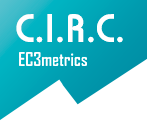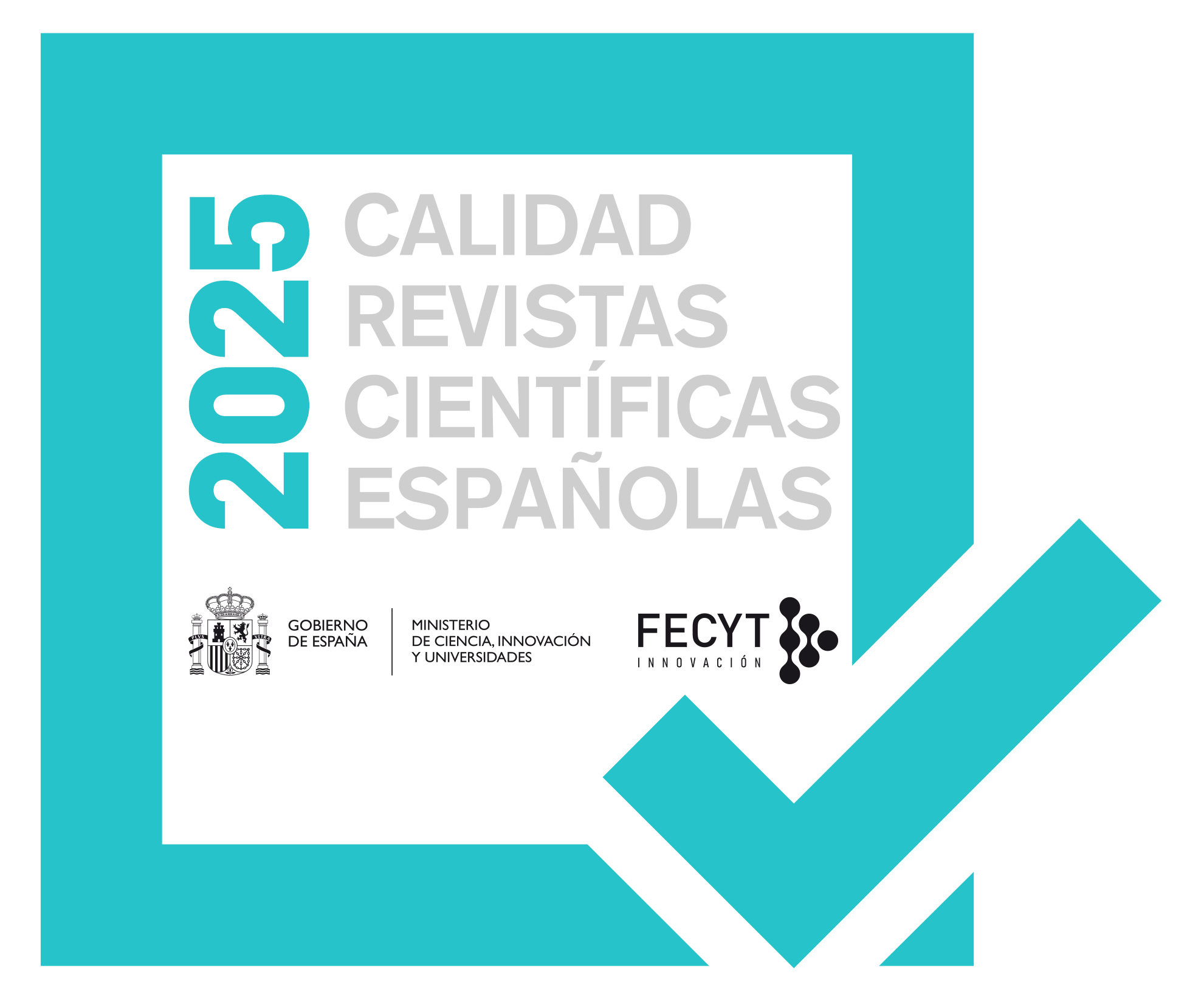About the Journal
Electronic ISSN: 2603-851X
1. Focus and scope
iQual. Revista de Género e Igualdad is an annual scientific publication of the Publications Service of the University of Murcia, edited by Editum (Editions of the University of Murcia). Its objective is to achieve equality between women and men, the empowerment of women and girls, and the elimination of all types of violence against them, in accordance with the following regulations:
International
UN (1948): Universal Declaration
SDG (2030): 5. Achieve gender equality and empower all women and girls.
European Union
- Treaty of Rome (1957), establishing the European Economic Community
- Treaty of Amsterdam (1997), equality between men and women as a task of the European Community.
- Charter of Fundamental Rights of the EU (2000 and 2007).
Spain
- Spanish Constitution 1978
- Organic Law 1/2004, on comprehensive protection measures against gender violence.
- Organic Law 3/2007, for the effective equality of women and men. Organic Law of Universities, reformed in April 2007 Science and Technology Law (2013)
- Organic Law 8/2021, of June 4, for the comprehensive protection of children and adolescents against violence. Education.
- Organic Law 10/2022, of September 6, on the comprehensive guarantee of sexual freedom.
- Law 15/2022, of July 12, comprehensive for equal treatment discrimination.
The priority axes are related to: women's and girls' access to quality education, health, economic resources, political and citizen participation, equality in decision-making, economic independence , leadership and decision-making in all areas of life; to the same opportunities as men in employment and salary; to dignity, integrity and the elimination of all forms of discrimination and violence against women and girls.
It is addressed to all persons interested in these issues, in accordance with the Universal Declaration of Human Rights, the UN Women guidelines, the Charter of Fundamental Rights of the European Union, the 2030 Agenda for Sustainable Development, the Strategy for the Gender Equality 2020-2025 (EU), and current Spanish legislation.
iQual. Gender and Equality Journal is an open, multidisciplinary, transversal, plural and international electronic publication. Its electronic format allows it to reach a very wide audience. The commitment is that this journal can promote a more just and egalitarian society.
Original research articles, theoretical review, applied, methodological and practical research are accepted. Non-discriminatory or sexist language will be used in the articles, in accordance with the aforementioned regulations.
2. History of the Journal
iQual. Revista de Género e Igualdad was born as a result of the collaboration between professors who had been working for equality between women and men, from different areas of knowledge, and decided to present the proposal for the Journal to the General Publications Council of the University of Murcia. iQual. Gender and equality Journal, under the direction of Professor Encarna Bas Peña, Professor of Theory and History of Education at the University of Murcia, deputy director, Mª. Carmen López Aniorte, Professor of Labor Law and Social Security at the University of Murcia, and as secretary Professor Francisco Miguel Ortiz González-Conde, Associate Professor of the Department of Labor Law and Social Security, University of Murcia. We also have the invaluable support of Professor Eva Mª. Rubio Fernández, professor in the Area of Public International Law and International Relations.
The General Publications Council of the University of Murcia approved the magazine on March 29, 2017, and the first issue was published in February 2018. On October 1, 2024, Professor Francisca María Ferrando García takes over the direction of the magazine. , Professor of Labor and Social Security Law at the University of Murcia, on the occasion of the retirement of Professor Dr. Encarnación Bas Peña.
The journal is published annually. Its purpose is to contribute to the scientific debate on equality between women and men, the empowerment of women and girls, and the elimination of all types of violence against them.
Its electronic format allows it to reach a very wide audience.
The commitment is that iQual can become a reference journal for the entire academic community, professionals from different fields and for those who wish to get closer to this reality. The Journal declares itself open to all disciplines, it is interdisciplinary, so it accepts articles from all areas of knowledge.
3. Peer review process
The articles received, as long as they comply with the guidelines for authors, will be subjected to blind or double-blind peer review. The procedure is the next:
Two specialists in the field are contacted individually to propose the evaluation of the anonymized article.
Once the people who are going to carry out the evaluation accept the review, the anonymous article is sent to them and they are given a period of approximately six weeks to do so.
- When the acceptance is received, it is answered thanking the availability.
- When they answer that they cannot, another evaluator is sought.
They are sent an evaluation sheet with detailed instructions for their review: evaluation criteria for originality, relevance, methodological rigor and formal presentation of the manuscripts, as well as how to carry out the review. Evaluations are accepted.
Acknowledgment of receipt is given and thanks are communicated for the task performed. It is also reported that if you need it, you will be issued a certificate in the category of evaluator or evaluator of the journal.
When a fortnight passes from the deadline for receiving the evaluation, the pending task is remembered.
Once the two evaluations have been received, according to the results of these, it is decided:
- If both are favorable, the job is moved to the list of publishables. The favorable editorial decision is communicated to the author or author, by means of a notification that includes the reasons why it has been accepted, as well as the opinions -original or adapted by the Editorial Office-, issued by those who have carried out the evaluation.
- If one is favorable and the other is negative, a third is requested, which is what makes it possible to decide definitively. In these cases, the editorial decision that is communicated is: "Crectifications are needed and revise again"
- If both are negative, or two of the three are negative, it is not accepted for publication. In these cases, the editorial decision that is communicated to the authors is: "Decline"
- The total process between reception, evaluation and publication will cover ten months.
Those who receive favorable evaluations have a period of approximately one month to deliver the article, and are asked to communicate the modifications made through change control, to show that they comply with the suggestions made to the work.
Once the revised article is received, it is verified that the author or author has modified the text in accordance with said changes. You are informed that it is accepted for publication.
At this time, authors or authors who request it are provided with a certificate of acceptance of their work in the current open number at that time.
4. Review criteria
The basic criteria for the evaluation of the articles will be: intellectual, scientific and methodological rigor; degree of internal coherence; timeliness, topicality and interest of its theme; originality and/or novelty of its content; clarity and expository order and literary quality.
According to the characteristics of each area of knowledge, where appropriate, the following aspects will be taken into account: the introduction and theoretical foundation, the objectives, the methodology, the results, the discussion, the analysis of results and the conclusions. .
See the Submission section.
review time
The average time to notify the authors of the result of the first review of their work is three to six months from the date of receipt of the original, but the review process can last up to twelve months.
Review Tracking
The author or author can follow the review process of her article through her account on the journal's website.
Result of the review
The result of the review process may be:
- Acceptance of the article
- Acceptance subject to rectification
- Rejection
In the case of requests for modifications, a period of up to three months will be given to make the requested observations. After this period without obtaining a response, the work will be rejected and archived. The corrected versions will also be reviewed by those who carried out the initial evaluation for their final approval. The resolution, in case of refusal, will be motivated.
Any of these reports will be sent to the author by email.
5. Frequency of publication
iQual. Gender and Equality Journal is published annually, during the month of February. The deadline for receipt of articles is announced in the "notices" section.
6. Intellectual property and copyright
1 The Publications Service of the University of Murcia (the publisher) retains the economic rights (copyright) of the published works, and favors and allows their reuse under the use license indicated in point 2.
© Publications Service, University of Murcia
2. The works are published under a Creative Commons Attribution-NonCommercial 4.0 International license (CC-BY-NC)
![]()
This license allows the generation of derivative works as long as they are not used commercially. Neither can the original work be used for commercial purposes.
7. Open access policy
This journal provides immediate open access to its content, based on the principle that providing the public with free access to research contributes to a greater global exchange of knowledge.
Immediate free access to its content is offered on the principle that making research freely available to the public contributes to a greater global knowledge exchange.
iQual. Gender and Equality Journal allows the deposit and dissemination of the pre-print version of the articles prior to their publication.
No fee will be charged, neither for sending nor for publishing articles.
8. Conservation guarantees
Once the articles have been published, this journal guarantees the conservation of the digital files through the institutional repository of the University of Murcia "DIGITUM", as well as in "Crossref" through the registry of digital object identifiers of the International DOI Foundation.
9. Interoperability protocol
The journal provides an OAI-PMH (Open Archives Initiative – Protocol for Metadata Harvesting) interface that allows its contents to be collected by other distribution systems, such as digital repositories and harvesters.
Specifications:
- OAI-PMH Protocol Version 2.0
- Dublin Core Metadata
Route for harvesters: https://revistas.um.es/iqual/oai
10. Digital preservation policies
All the journals published by the University of Murcia are hosted in the DIGITUM institutional repository (digitum.um.es). Authors are allowed and encouraged to deposit their works published in iQual in other repositories, since in this way their circulation, dissemination and preservation are favored.
11. Editorial practices in gender equality
iQual establishes the inclusion of the gender perspective in all published research, both in the research design and in the writing of the articles.
For an adequate transfer of knowledge, guidelines are proposed for the use of an inclusive language in terms of gender in Spanish. https://www.un.org/es/gender-inclusive-language/guidelines.shtml








